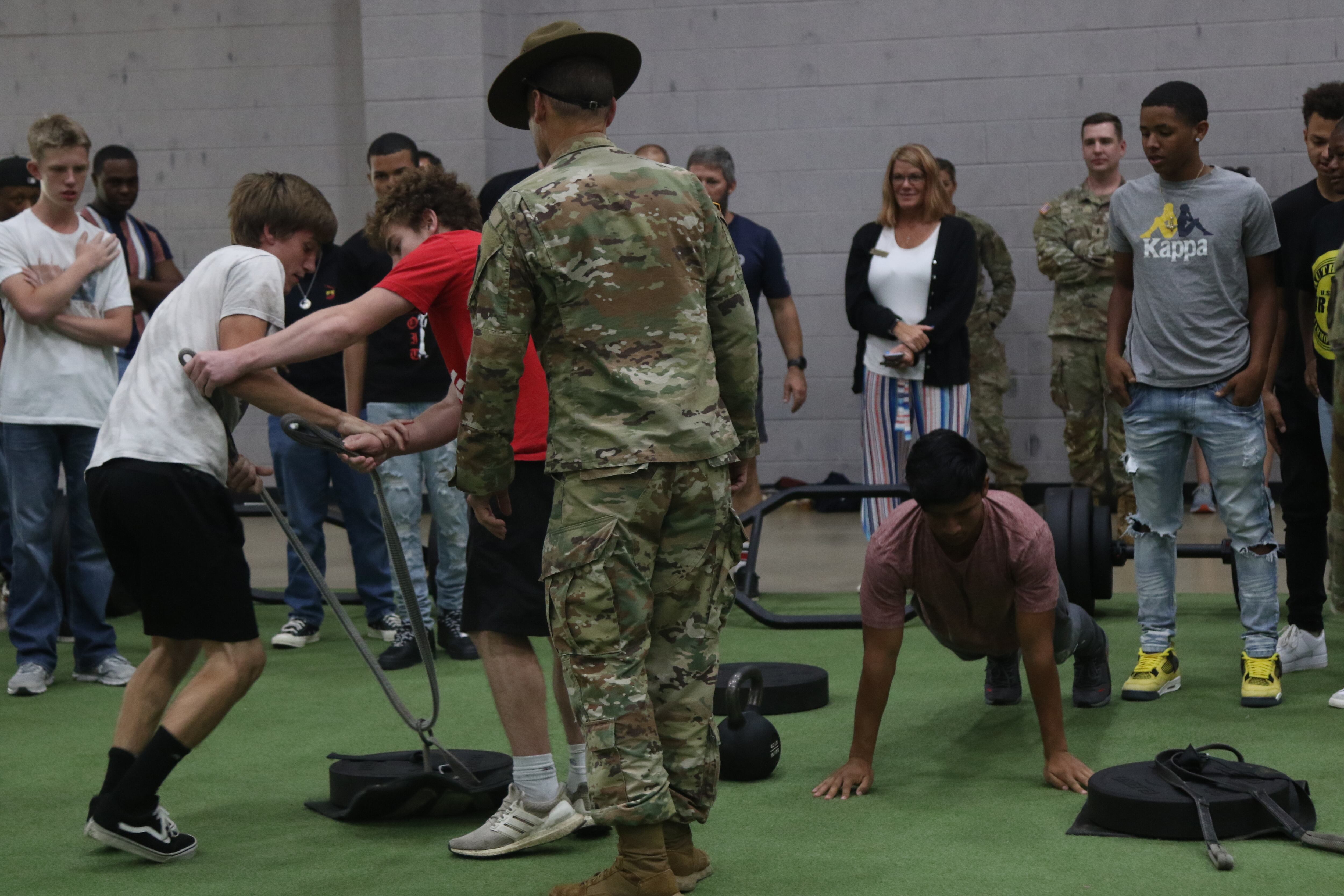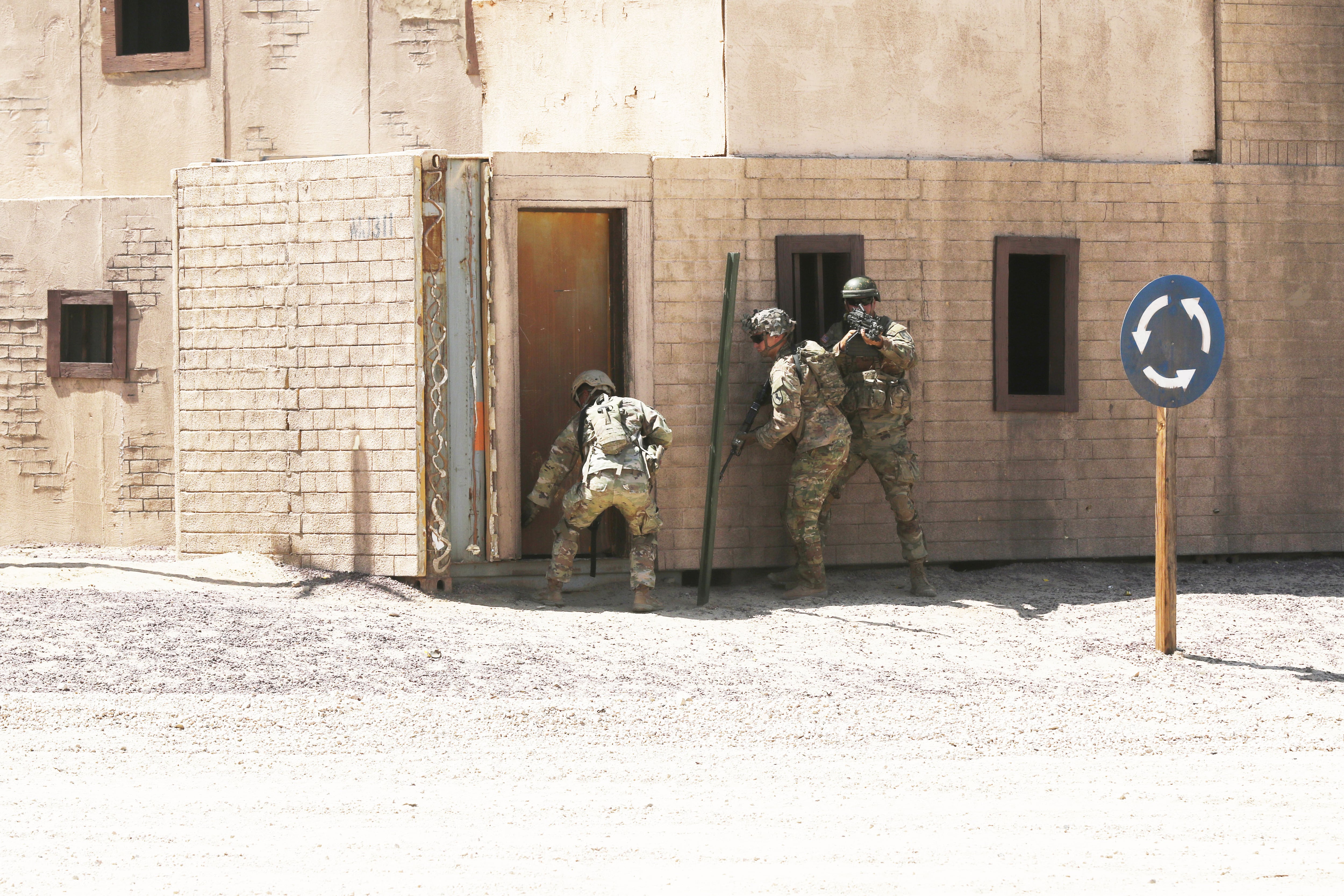Over the past five years, the Army has overhauled its doctrine to meet new foes on a new battlefield while simultaneously beginning to modernize training and career building for soldiers across the service.
Those foundational pursuits find a home at Training and Doctrine Command. In September, Gen. Gary Brito took over as commander from retiring Gen. Paul Funk.
Brito is no stranger to TRADOC. He’s spent a good chunk of his 35 years in the Army working at units under the command, from serving as director for the Force 2025 and Beyond Directorate to commanding the Joint Readiness Training Center at Fort Polk, Louisiana, to leading the Maneuver Center of Excellence.
But Brito started like any other soldier, showing up for training.
“I was not unlike any new officer or just like a young soldier, a private, who probably doesn’t even know what Training and Doctrine Command is,” he said.
But at least two newer publications from the command will guide much of what all soldiers do to prepare for combat.
The Army published Field Manual 7-0: Training in June 2021, highlighting a system-wide update for training management. The 2017 release Field Manual 3-0: Operations set down the principles of Multi-Domain Operations doctrine as task forces experimented with the concept. The final doctrinal publication was scheduled for publication in October as of press time.
And like any soldier who sticks around for a few years, Brito cycled through TRADOC institutions again and again.
But unlike when Brito was rising through the ranks, a new program under TRADOC is flowing out across the Army that will help individual soldiers and their leaders better assess, track and coordinate all the steps that leaders must complete as they progress.
That program is Project Athena.
“It is a professional development timeline and opportunity for young officers from the captain onward, so that he or she has what they need to go into the senior ranks,” Brito said.
While it’s aimed at commissioned officers, for now, much of it can be applied to developing noncommissioned officers and warrant officers, as well, according to Brito.

During his most recent posting before TRADOC commander, Brito served as the Army G-1, working on talent management initiatives alongside the secretary, chief of staff and sergeant major of the Army.
Brito has described Athena as the “nexus” of talent management.
That project, and other talent management initiatives, aim at the senior ranks but also help mid-career personnel through battalion and brigade commander assessments.
But leadership starts at the small unit level, a principle hammered by Funk and Sergeant Major of the Army Michael Grinston in multiple public statements. Brito won’t deviate.
“We need strong, competent, well-trained, disciplined, fit, small-unit level leadership, whether that’s a Bradley crew or a tank crew, whether that’s a cook section or medical section,” Brito said.
Combat training centers, where leaders and units are tested, are seeing upgrades in their own ways.
Opposition forces are adding dozens of drone platforms to locations such as the National Training Center, at Fort Irwin, California. They’re also taking new approaches that shed counterinsurgency and add large-scale combat scenarios to places such as Brito’s old stomping grounds, JRTC.
“Just from personal experience going through training centers as a field grade officer, as a commander, and I know every soldier has experienced this, it is a crucible of training about as close to combat as you can get,” Brito said.

And that’s key to the four-star’s advice to all soldiers and leaders in the Army — keep your training and skills current. Because you will be tested, either in garrison or combat. And part of that is TRADOC’s job.
“We stay relevant in what we do and make sure we don’t waiver in the standards of training that our soldiers deserve, whether they’re deploying in the next month or three years from now,” Brito said.
From schoolhouse to garrison, training stateside or overseas exercises, the individual and collective readiness that TRADOC and the rest of the Army aims to achieve matters.
“If you fast forward to the next year, two, three or four, the Army will be called to do something, and it may not be what you had on your dry erase board,” Brito warned.
Todd South has written about crime, courts, government and the military for multiple publications since 2004 and was named a 2014 Pulitzer finalist for a co-written project on witness intimidation. Todd is a Marine veteran of the Iraq War.





